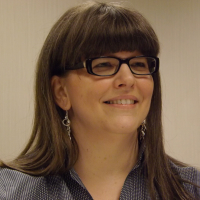Last week the world reeled as we learned that the number of Syrian refugees had passed the two million mark.Which is to say: Two million people—the equivalent of the combined populations of Boston, Detroit, and San Francisco—have fled their homes and country to what can only be called an uncertain fate in Lebanon, Jordan, Turkey, Egypt, and North Africa, with no idea whatsoever when or if they might ever return. Many refugees actually depend on the kindness of family and friends and never register with humanitarian aid organizations, so it’s likely that “two million” is, in fact, a low estimate.

Yet as horrifying as that is, as heartbreaking as the needs of the people fleeing and the people receiving them are, we must remember that those two million actually represent less than a third of all who have run for their lives in the course of this war.
The European Commission Humanitarian Office reports that an estimated 4.25 million Syrians are internally displaced persons—people forced out of their homes and communities by the violence, but who haven’t yet made it across a border. Thus, a total of 6.25 million Syrians—fully one third of the country’s population of 21 million—are, in fact, wandering.The implications of this are staggering. As the region’s nations face historic internal turmoil and grapple with the sudden influx of hundreds of thousands of strangers—sometimes at a rate of thousands a day—the social and cultural fabric of Syrian life has been shredded beyond recognition beneath bombs and chemical weapons.
Consider a life: Parents, grandparents, growing children. Income is earned, homes are built, marriages celebrated and babies welcomed. You shop for your daily needs, come home along familiar paths, make holiday plans and hope your aunt makes enough of her signature dish. Your father falls ill, your daughter outgrows her shoes, you bring a present to the neighbors. At every turn, your life is woven tightly into the garment of the lives around you, and whether any given day brings sorrow or joy, you know where to find solace, support, or someone with whom to share your good fortune.
Now it’s gone.
It’s gone, and you don’t know if you’ll ever get it back. It’s gone, not just for you and your family and your community, and not even “just” for the two million people who have (at the very least) found a way out of the country and away from the killing. It’s true for six and a quarter million people—the equivalent of nearly the entire population of Israel.
The Jewish people knows what this chaos looks like. We see it in the eyes of survivors; many can still feel it in their flesh. We are a people that until very recently knew little but the hurriedly packed bag, the abandoned home, the loved one lost forever. Whatever Jews and Arabs may have done to or said about each other in the 20th and 21st centuries, surely when we see a father gather a dead child in his arms, our arms must ache, too.
And as the heart cries out, the mind must also be honest about the horror’s further ramifications. It might be possible to imagine that the strife in Egypt won’t spread beyond its borders; it might be possible to hope that Jordan’s King will work with his opposition toward democracy and stability. It’s possible. But there’s simply no way to see the massive, violent movement of 6.25 million people just beyond and all around Israel’s borders as an event that might leave anyone in the region untouched. At a certain point, likely at many points, chaos tips over in ways that cannot be predicted and whoever is within shouting distance finds themselves in the path of the consequences.
This is the time in the Jewish year in which we straddle the universal and the personal at once: Last week we celebrated harat olam, the world’s creation; this week, we stand before the Divine and weigh our most intimate behavior. We do each while surrounded by our community and all we hold dear. We are reminded, at every holiday table and with every blow of the shofar, that our destiny as individuals and as a community is bound in a spiral of mutuality that turns and returns, endlessly.
The Syrian people are not my people. Some of them have killed some of mine; some of mine have killed some of theirs.
And yet they are my people, because they, too, were created b’tselem Elohim, in God’s image. They are my people because they suffer untold terrors. They are my people because wherever their calamity leads, it will brush against or crash into my people and my home. We cannot yet begin to guess the outcome of the shattering of Syria and its people, but lines drawn on maps will not keep the disaster neat and tidy.
I stand before my Creator this week devastated by what humanity has wrought, and not a little frightened of what is to come—frightened for Israel, frightened for everyone in the region, but mostly frightened for the mothers and fathers grasping little hands in the night, and trembling.






